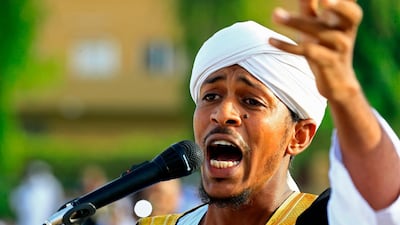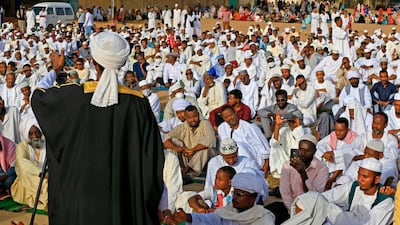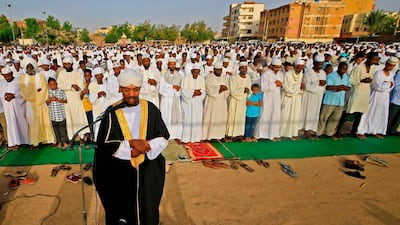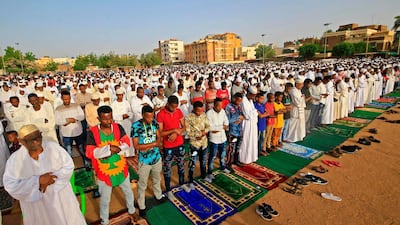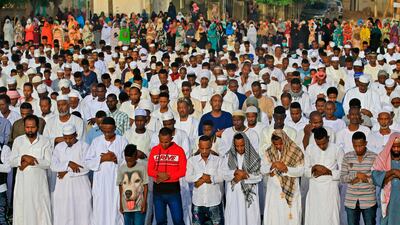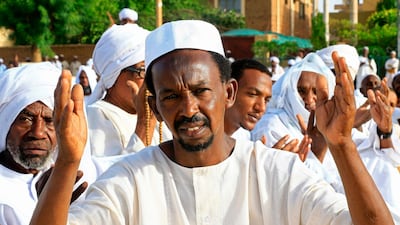Sudan has confiscated $4 billion (Dh14.6b) worth of assets from former president Omar Al Bashir, the country's anti-corruption body said.
Al Bashir's decades-long rule came to an end last year when the army moved to remove him as head of state amid nationwide mass protests. Since then, the country has taken steps towards democracy with a power-sharing deal between civilian leadership led by Prime Minister Abdullah Hamdok and the military heads.
"Our initial estimates of the value of the assets, shares in different companies and buildings we have confiscated is $3.5 billion to $4 billion," Salah Manaa, a spokesperson for the Anti-Corruption and Regime Dismantling Committee, said. The body was set up late last year as part of the process of recovering lost cash and assets.
As part of the transition process and to prepare the country for democratic elections, Mr Hamdok has vowed to uproot any vestige of Al Bashir's rule and recover plundered assets. The former president was jailed in December after being found guilty of illicitly possessing millions of dollars in foreign currencies. He has also been indicted by the International Criminal Court for alleged crimes against humanity committed in the western region of Darfur and the new administration has said it will look at handing him over to face trial.
Sudan is facing a dire economic crisis and supplies of basics including bread and fuel are scares. A major stumbling block to accessing international support is the US designation as a state sponsor of terrorism dating back to Al Bashir's support of Al Qaeda.
However, Mr Hamdok's administration took a step towards being removed from the list with an outline agreement on paying compensation to victims' of 1998 bombings of US embassies in Tanzania and Kenya.
US courts have ruled that Sudan assisted in the attacks and is liable for billions in compensation. As part of the deal between the governments, the amount that Sudan will be liable to pay is expected to be significantly less than the $4.3 billion in punitive damages ordered by the courts.
As part of Mr Hamdok's plan to salvage the economy is negotiating an end to numerous civil conflicts that – if resolved – could cut the huge defence spending bill significantly and allow him to divert vital funds to other civilian sectors.
